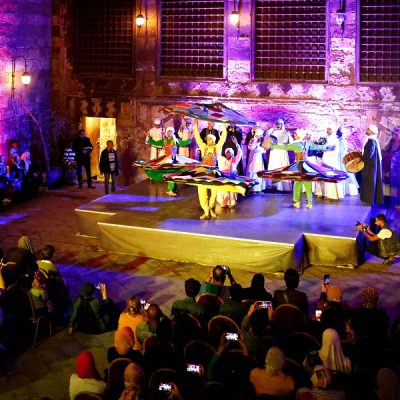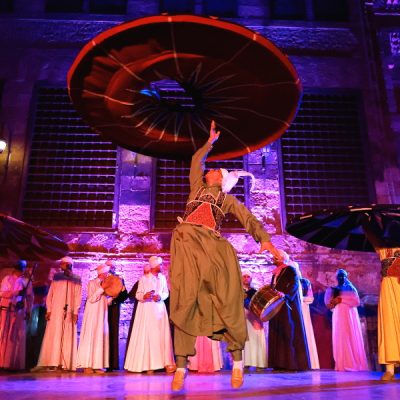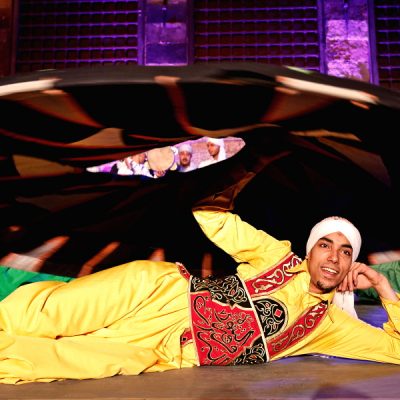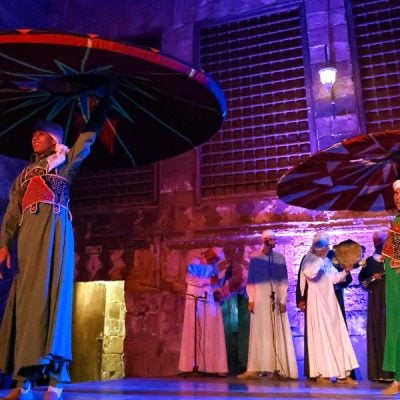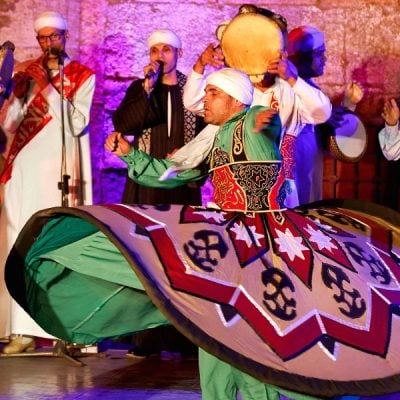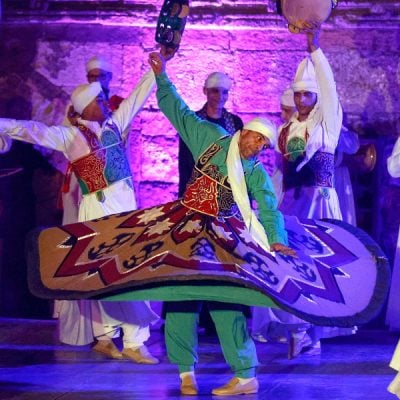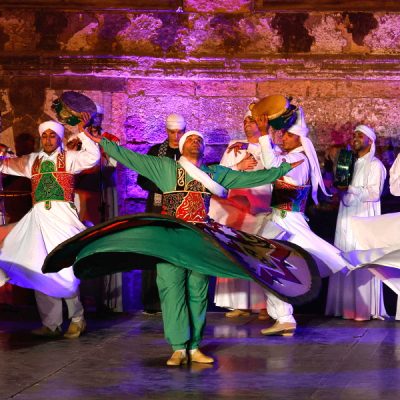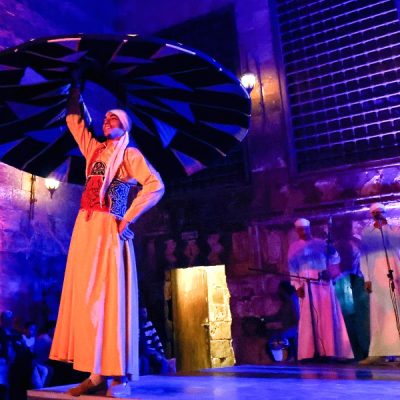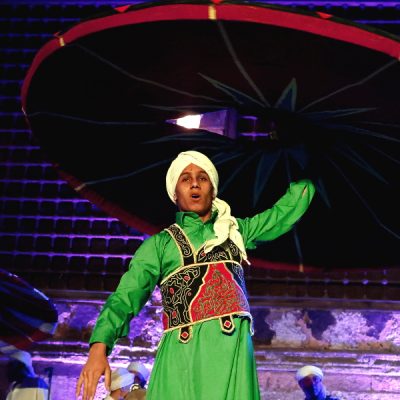A troupe of whirling dervishes performs the traditional “tanoura” (skirt) dance at the medieval Sultan al-Ghuri Complex built in 1505 in Cairo, Egypt.
Egypt’s kaleidoscopic whirling dervish performance is a world away from those of Turkey, who trace their origins to the teachings of Sufi poet and mystic Jalal al-Din Rumi.
Though the Egyptian version of the art has become a festive occasion, most practitioners hold to the roots of the ritual in the mystical tradition of the Muslim Mevlevi order founded in the 13th century by Rumi in Konya in present-day Turkey.
Today, it is a staple of Egyptian tourism, with some dancers, particularly at hotels and entertainment venues, attaching lights to their skirts for an added surprise factor, to the delight of tourists and spectators.
ADVERTISEMENT
ADVERTISEMENT






